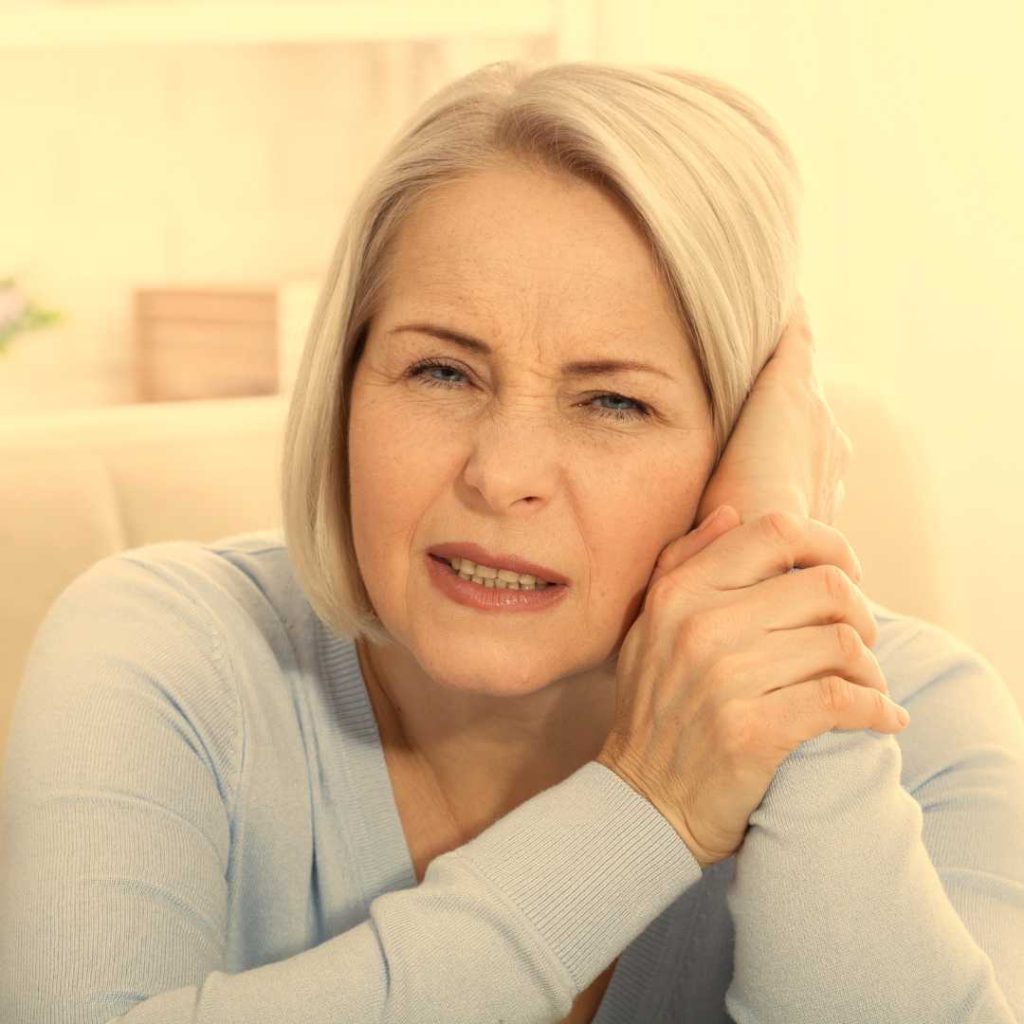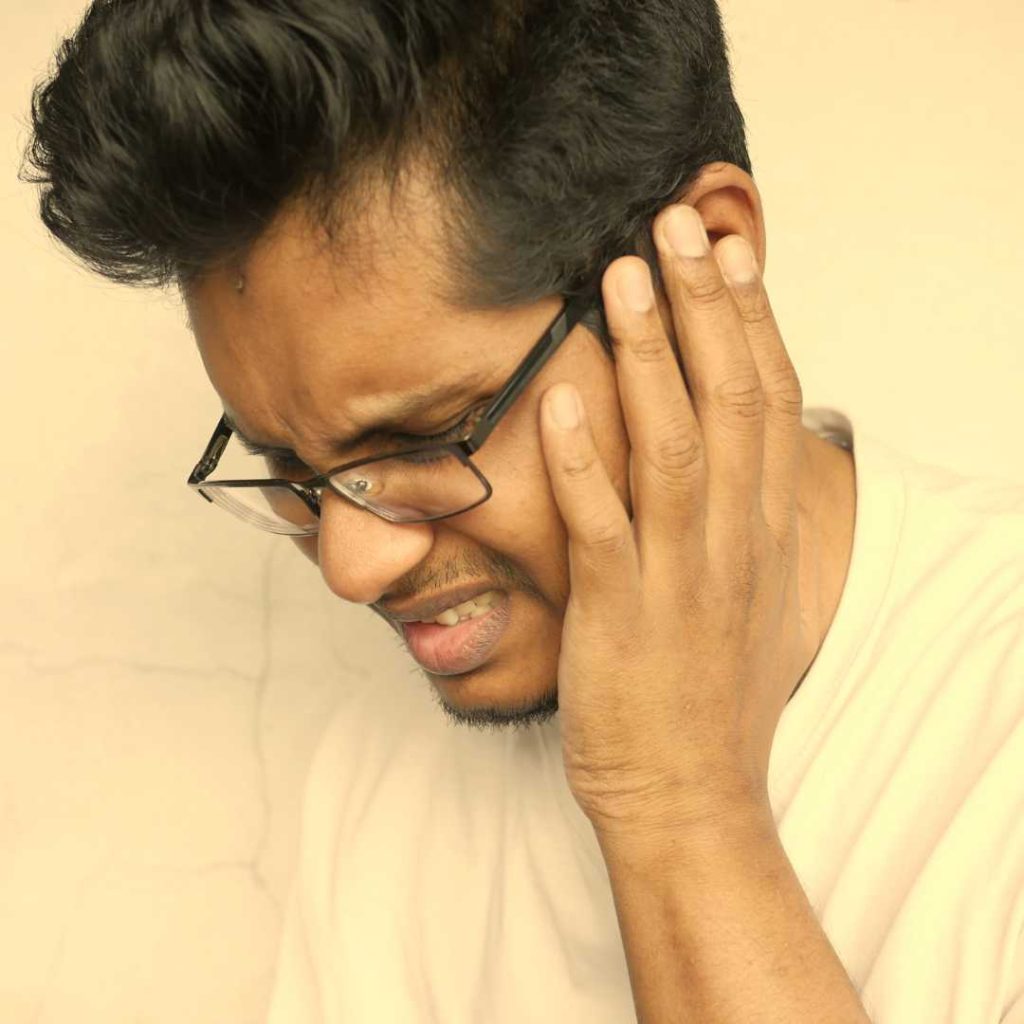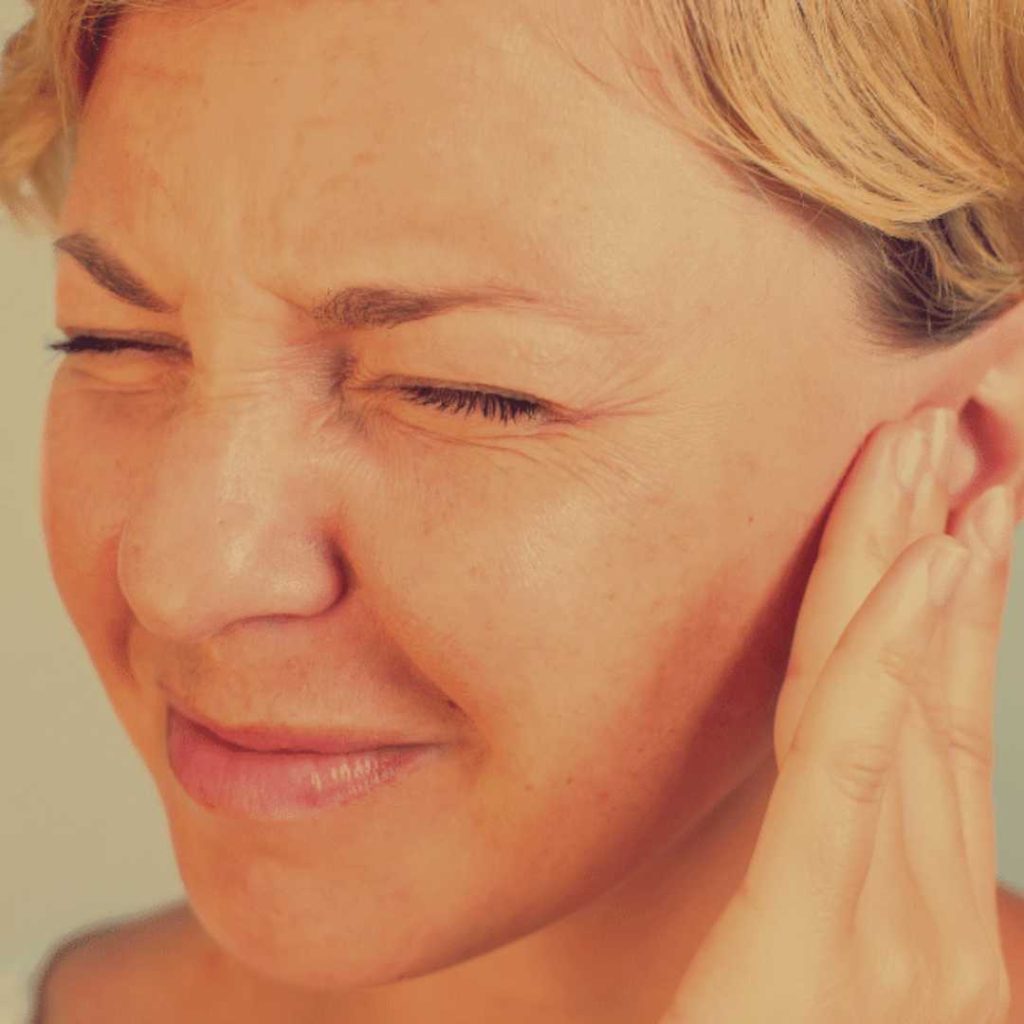TMJ Ear Pain Calgary
TMJ Ear Pain
TMJ Ear Pain Treatment in Calgary
What causes ear pain?

Earaches are not only known to affect children, but adults as well. Ear pain can occur in one ear or both at the same time. The pain can be dull and constant or sharp and painful. Earaches can also be accompanied by a fever, infection and possible hearing loss.
8 conditions that could be triggering your ear pain
1. Broken Bones
There are small inner ear bones linked to the sequences that pass percussive information from the tympanum to the cochlea that converts these vibrations into neural signals. These 3 inner ear bones help transfer vibrations to help make sound. Breaking 1 of these bones disrupts the sequence and transfer of sound causing not only pain or deafness.
2. Ear Barotrauma
Ear barotrauma is ear pain caused by pressure changes. The tube that connects the middle ear to your throat and nose works to regulate ear pressure. This tube is the Eustachian tube and when it is blocked, it can cause barotrauma.
If you deal with fluctuating pressures you can easily experience barotrauma, frequent occurrences of barotrauma may cause further complications. If you experience occasional or recurrent cases of barotrauma, you need to seek medical attention.
3. Eardrum Rupture (perforated eardrum)
A small tear or hole in the tympanic membrane. This is the thin membrane, which divides the middle ear and the outer ear canal. The tympanic membrane vibrates when the sound waves enter the ear. The vibration continues to the middle ear. A torn membrane can cause permanent hearing loss.
4. Ear Infection
When bacterial or viral infections affect the middle ear, it can become chronic or acute. The parts of the ear, usually the middle ear are affected and it can become painful accompanied with fluid.
An acute infection usually does not last long, but a chronic ear infection that recurs many times may cause permanent damage to the middle or inner ear. If you find you are having too many ear infections, you may need to seek a professional.
5. Foreign Objects
A foreign object is anything that does not belong in your body in medical terms. They can be placed into the body intentionally or accidentally. If they become permanently stuck or lodged in the ear, it may cause the same result as earwax.
This can also result in hearing loss. A professional should be sought to help remove the object in your ear.
6. Mastoiditis
The mastoid bone is the most critical structure behind your ear. This bone is similar to a sponge and made out of air sacs, it is not rigid as bones usually are.
When an infection develops in the middle ear the infection can develop in the mastoid bone. This is serious and professional attention is required.
7. Otitis Externa (swimmer’s ear)
Better known as swimmer’s ear, otitis externa is a condition caused by inflammation of the outer ear and ear canal. Skin inflammation in the ear canal is the basic disorder of this condition. The inflammation is secondary to the dermatitis or eczema without a microbial infection.
Otitis externa can also be caused by an active bacterial or fungal infection. In both cases of otitis externa, the skin of the ear canal will swell and become tender to the touch. If left untreated this condition can lead not only to intense ear pain, but also to a hearing loss.
8. Temporomandibular joint disorder (TMJ)
The temporomandibular joint connects your skull to the lower jaw, known as the mandible. There are 2 of these “TMJ” joints, one on each side of the skull in front of your ears. This joint allows your jaw to move enabling you to eat, drink and speak.
TMJ disorders can create severe ear aches, tinnitus, vertigo, and even hearing loss if it begins to affect the nerves in the ear.
Are you ready for help?
Are you tired of the pain caused by an earache? Seeking professional assistance is always advisable if you are not feeling well. Do you think you have one of these symptoms? Your dentist will know which of these symptoms are more serious and how he can cure them.
If you or a friend has had ear pain for several weeks, it is time to contact a professional to make sure it isn’t turning into something more critical.
TMJ ear pain in calgary
Connect with Dentalife
Did you know your ear pain could be attributed to TMJ?

Did you know that the chronic pain of TMJ affects nearly 80 million people. Do you suffer daily from any of these TMJ symptoms such as migraines, chronic headaches, facial pain, neck pain, tinnitus, or ear pain?
TMJ refers to the disorder known as temporomandibular joint disorder, which involves the muscles and joints in the jaw. Due to a misalignment of the jaw, over the course of time, if it is ignored a patient with TMJ may develop one or more of many symptoms.
You are Not Alone – Earaches are a common symptom of TMJ
TMJ is a common disorder that your dentist understands and can treat. Nearly fifty percent of patients with TMJ notice ear pain while experiencing other symptoms of TMJ. Inflammation caused by poor misalignment of your bite, or stress on your jaw joint can play a big part in the pain in your ear.
Due to the proximity of the inner ear to your TMJ, it’s no wonder the inflammation in your TMJ radiates over to the area of the ear. It is understandable that doctors assume that your earache is due to an ear infection. If the earache is not accompanied by the symptoms of a fever, drainage or hearing loss, the absence of these symptoms may support a diagnosis of a TMJ disorder.
Are there Other Factors that Exacerbate Your TMJ?
When the complex system of muscles, ligaments and bones within the jaw no longer work together properly, a patient develops TMJ. The many painful TMJ symptoms are compounded due to the strains and stresses of your daily routines. The constant need to use your jaw is inevitable.
Swallowing, an involuntary reaction of the body, better known as a reflex action, occurs nearly 2,000 times a day. Along with eating and speaking, the muscles of your jaw get a lot of action in a day. Any misalignment in this area may cause a cycle of pain, which results in the damage of muscle, tendons, and ligaments leading to facial tenderness, and joint discomfort.
Are there any solutions that can ease my earache from TMJ?
If the pain you are experiencing worsens when you try to speak, swallow or eat there are therapies today that you can try. You have most likely tried to relieve your muscle pain with the aid of moist heat along with analgesics or anti-inflammatories. Your dentist has other methods such as ultrasound, and electric stimulation to relax the muscles.
Helping correct a bite misalignment and limit the strain caused by the grinding and clenching of your teeth, a precision made dental orthotic can be made by your dentist. Along with special relaxation techniques, your TMJ pain and earaches may improve.
Stop suffering
Don’t continue to suffer from TMJ and its effects. If you have any questions about TMJ and ear aches consult us for more information

REVIEWS FOR DENTIST DOWNTOWN CALGARY
The Alberta Dental Association & College does not allow dentists to display any patient-reviews directly on their website.
Please find us by Googling: ‘Dentalife Patient Reviews’
ear pain tmj calgary
TMJ Ear pain FAQ's

Can your TMJ make your ear hurt?
There can be many causes of ear pain, but not all of them are medical. A large number of ear pain sufferers can have TMJ disorder signs and symptoms as well. Ear pain is one of the most common TMJ disorder symptoms we see.
For non-medical ear pain, the problem is usually an inflammation of the TMJ tissue causing pain that refers back to the ear. The TMJ is not just a bone, it is an entire capsule of tissue made up of ligaments, tendons, muscles, and other types of supportive tissue.
Unfortunately, that supportive tissue includes nerves that tell the brain that there is pain in the area of the ear. Those nerves let us know if there is a problem in the TMJ area so that we can get it looked at.
Inflammation of this tissue causes most of the pain associated with the TMJ itself. So when the TMJ is not happy, the whole area can hurt. Inflammation often occurs with chronic strain of an area. And chronic strain in the TMJ is not a good thing.
What does ear pain feel like?
Ear pain may cause sharp shooting pains, dull throbbing pains, or a general ache in the ear area. Ear pain can come when you chew or when you open wide.
Ear pain can be only in the morning or at times during the day, or all the time. It may or may not be accompanied with ringing in the ear (Tinnitus). Whatever it feels like, something is not healthy.
Will TMJ ear pain go away?
Pain from the area around the TMJ may become severe and then subside over time. That does not mean the problem has gone away, it is just not as noticeable.
The best plan is to have the area assessed by qualified healthcare providers that can help determine the cause of the pain problem. Procrastination is usually not a good plan of action. Finding out the cause and effective treatment is always better.
What is Tinnitus?
Tinnitus is a perceived sound or ringing that does not have a physical origin. Often the sound is annoying and distracting and may interfere with sleep or daytime function.
Tinnitus can come from a neurological problem with the inner ear or the nerve to the brain and the brain itself. Tinnitus can also come from muscle and TMJ related problems.
What kinds of Tinnitus are there?
Tinnitus has two main types: Neurological tinnitus and Muscle tinnitus.
If your tinnitus is constant and does not change in intensity, the cause is probably neurological. Seek treatment with an appropriate neurologist.
If your tinnitus varies over time and has different levels of sound, and can be brought on by head movements or teeth clenching and grinding, or movement of your jaws, then the tinnitus may be more muscle related. This kind of tinnitus has a much better chance of being helped with dental treatments associated with TMJ.
